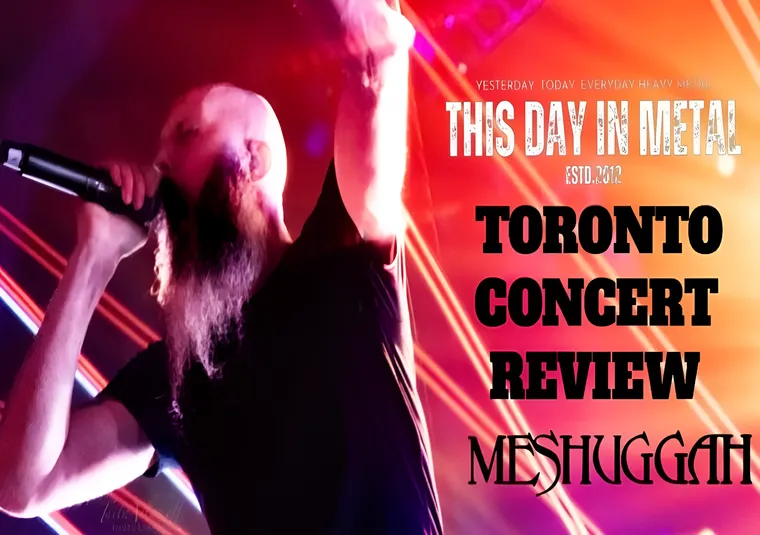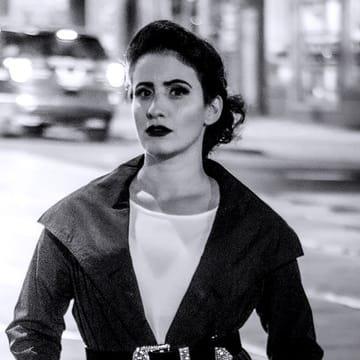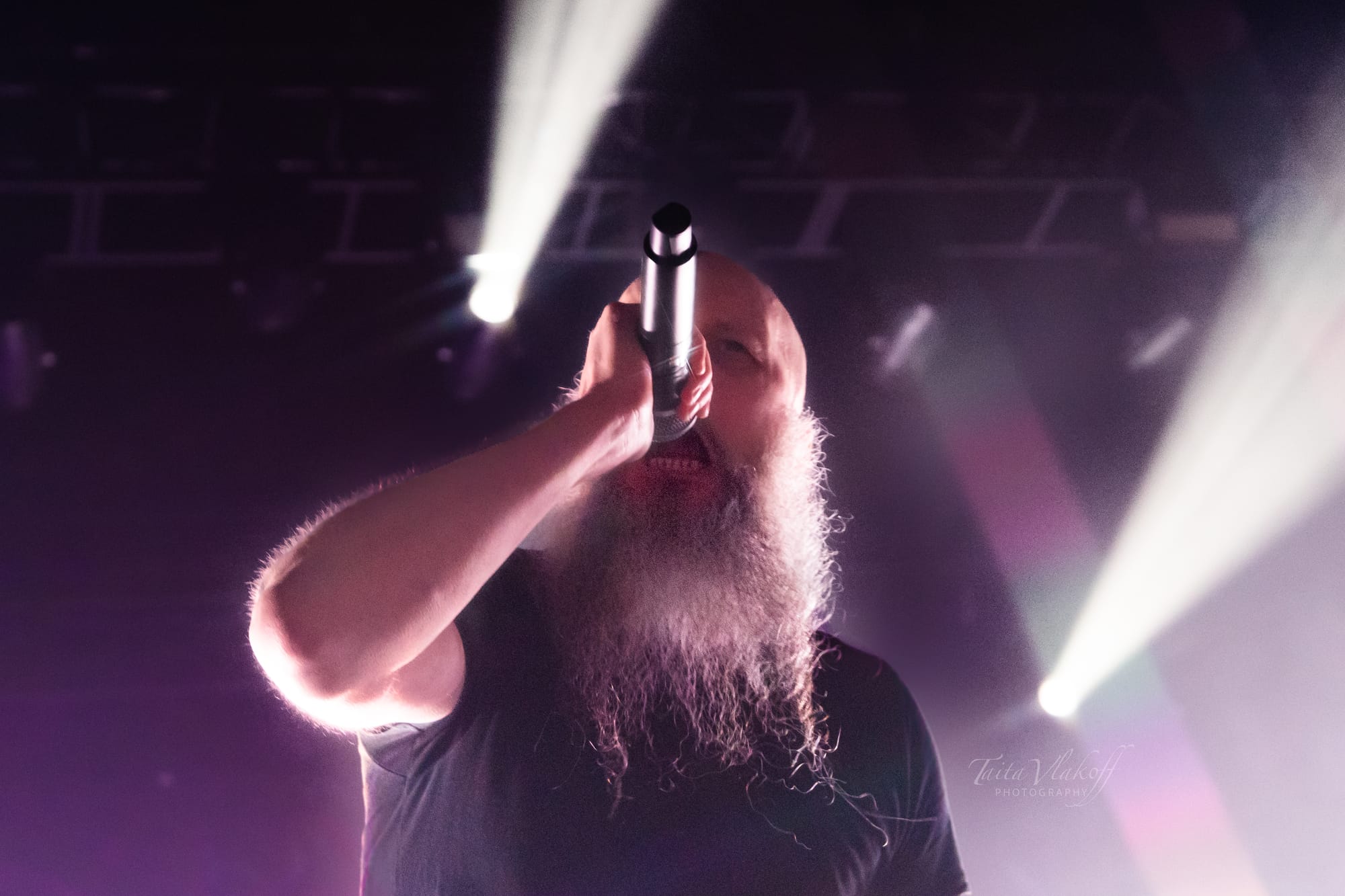
Some concerts entertain.
Others make history.
March 29 in Toronto, at the Great Canadian Casino Resort Theatre, we witnessed something heavier — a night where three titans of metal stood side by side and shook the city to its core.
Carcass, Cannibal Corpse, and Meshuggah.
A lineup that reads like a death metal prophecy — and Toronto showed up knowing exactly what we were walking into.
From the moment the crowd started filling the theatre, you could feel it — that electric tension only a night like this carries. Leather jackets, patched vests, diehard fans buzzing, already chanting before the lights even dropped. We were all ready to be wrecked.
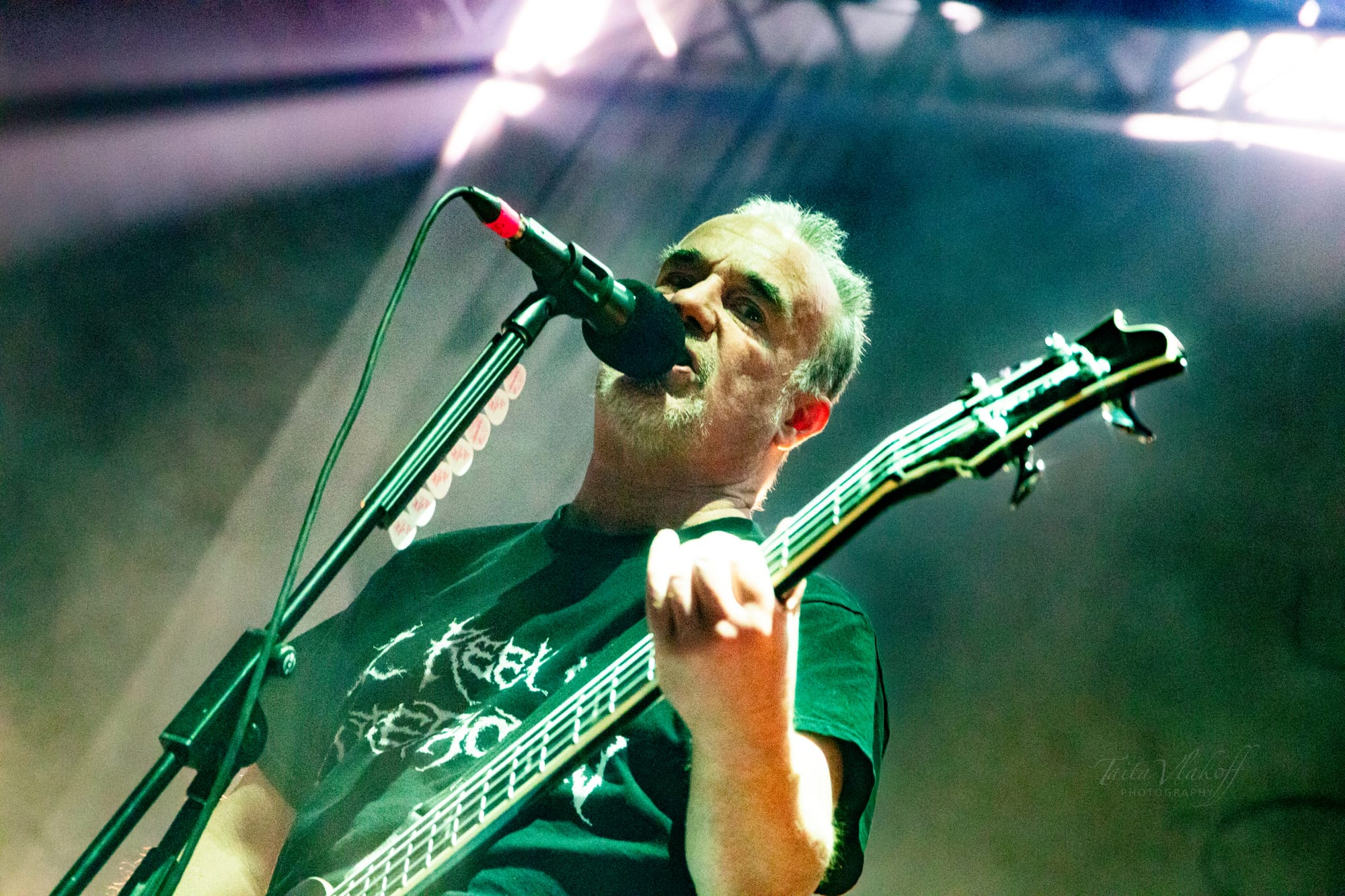
Carcass opened the night with surgical precision.No gimmicks. No filler. Just pure, clinical death metal delivered by one of the genre’s founding forces.
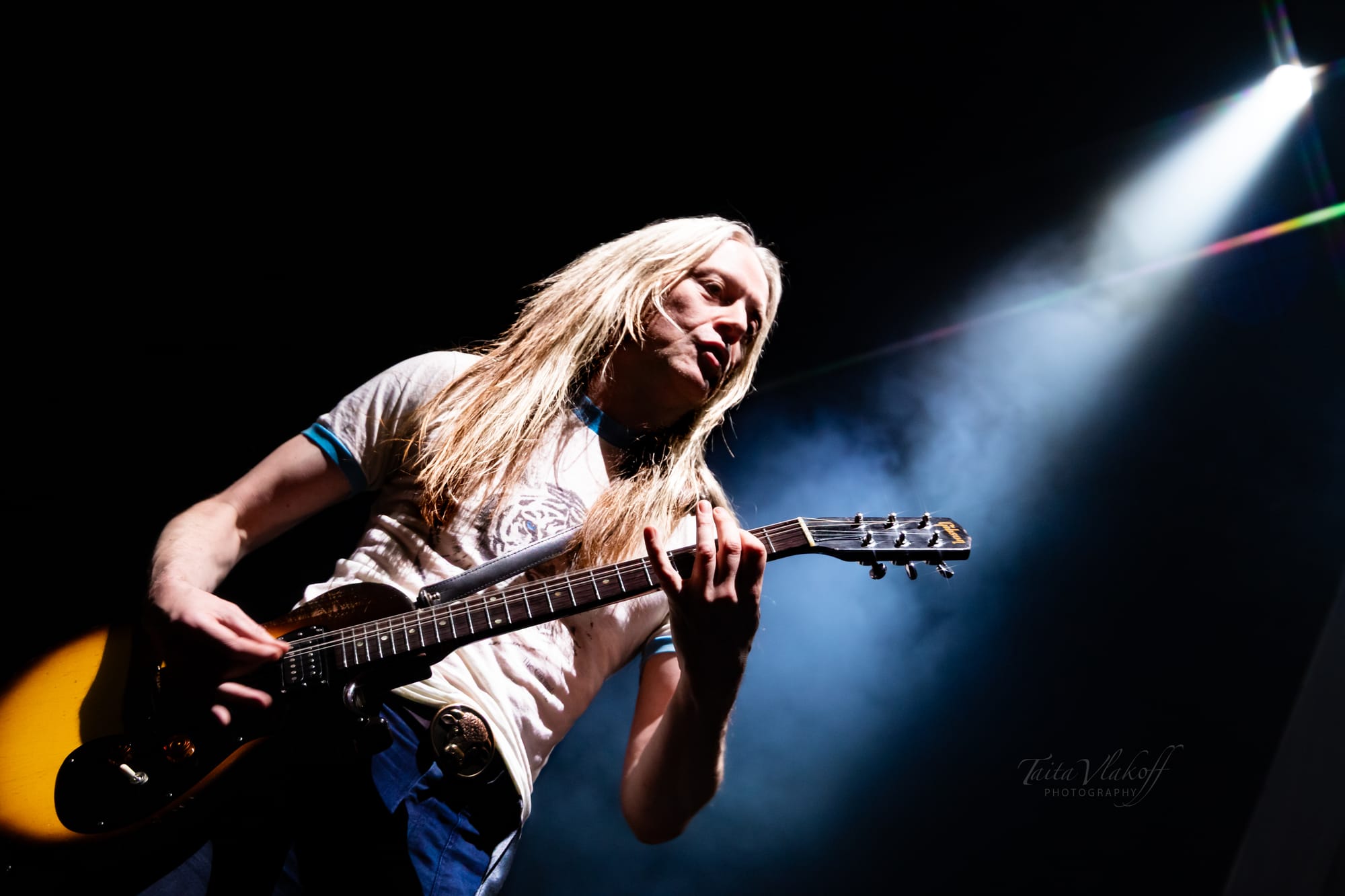
They set the tone immediately with the atmospheric build of The Living Dead at the Manchester Morgue before tearing into Unfit for Human Consumption.
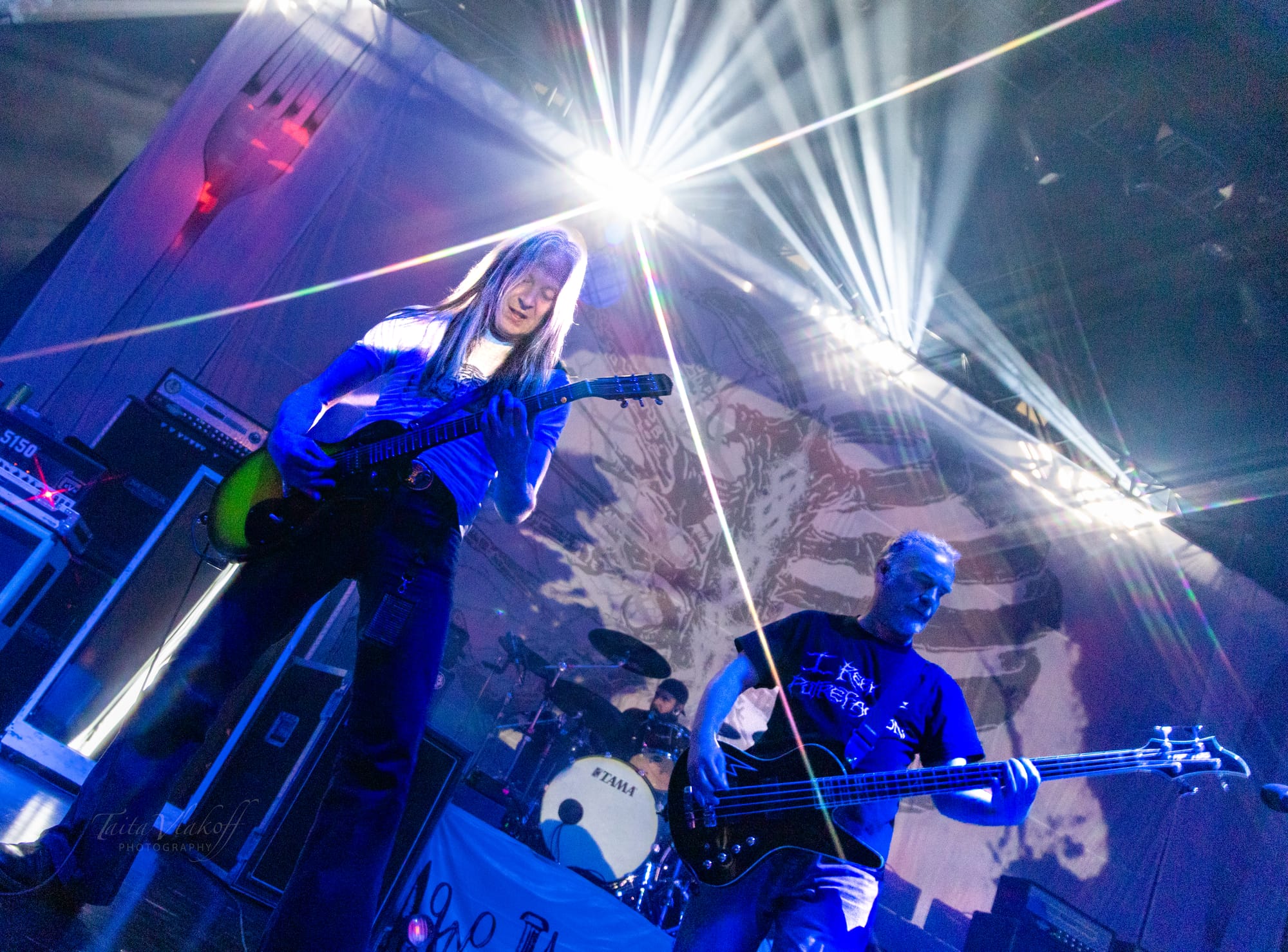
Jeff Walker, bass slung low, prowled the stage spitting every word with venom, while Bill Steer’s guitar tone sliced through the air like a scalpel.Alongside them, James “Nip” Blackford on rhythm guitar added weight to every riff, and Daniel Wilding’s drumming anchored the entire set — tight, relentless, and precise.
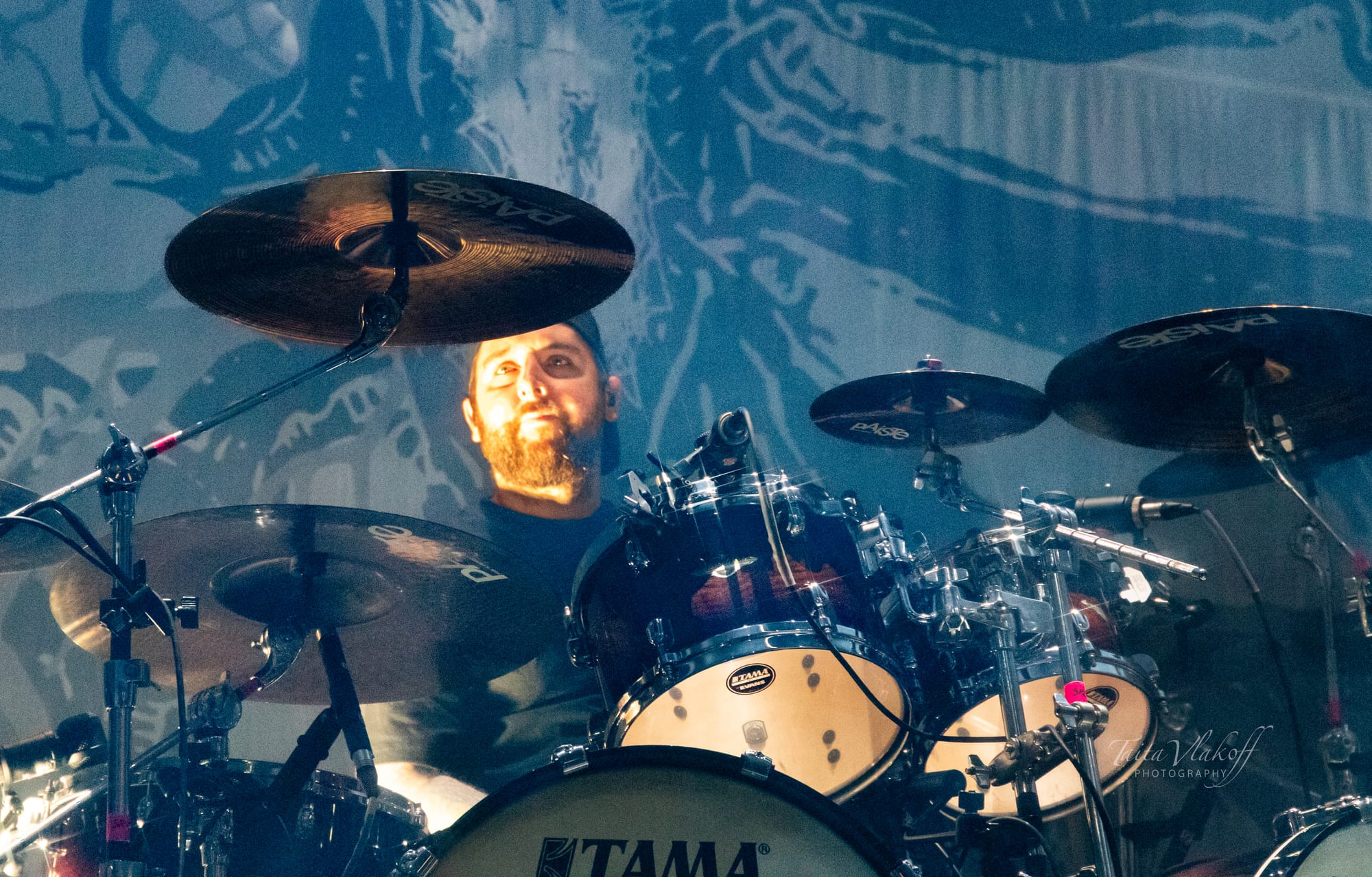
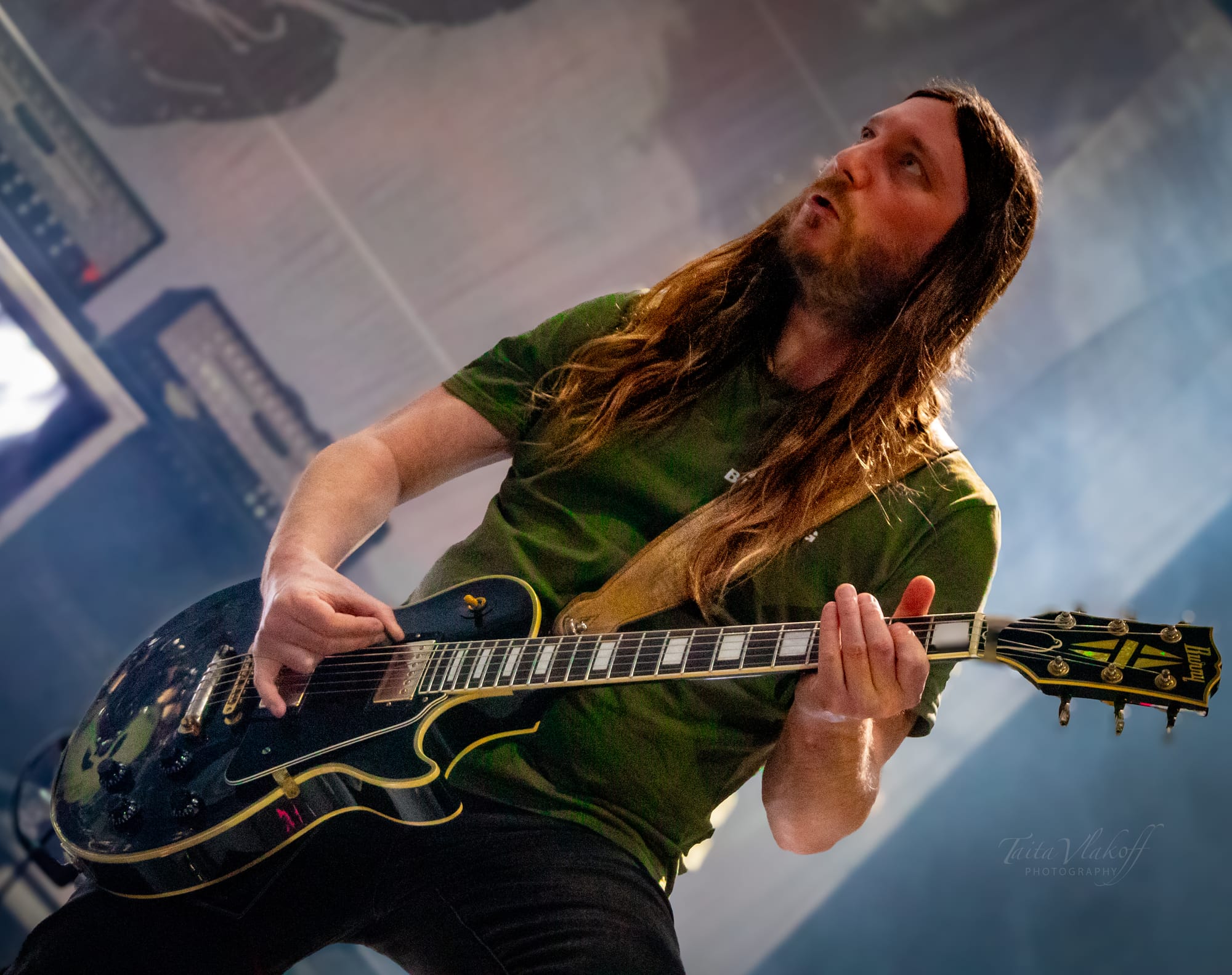
The setlist was a ride through Carcass’s iconic legacy: Buried Dreams, Incarnated Solvent Abuse, Dance of Ixtab, No Love Lost.
And when they played Heartwork, the crowd erupted — fists in the air, voices screaming every lyric like an anthem.
They closed with Carneous Cacoffiny, leaving the crowd buzzing, knowing this was only Round 1.
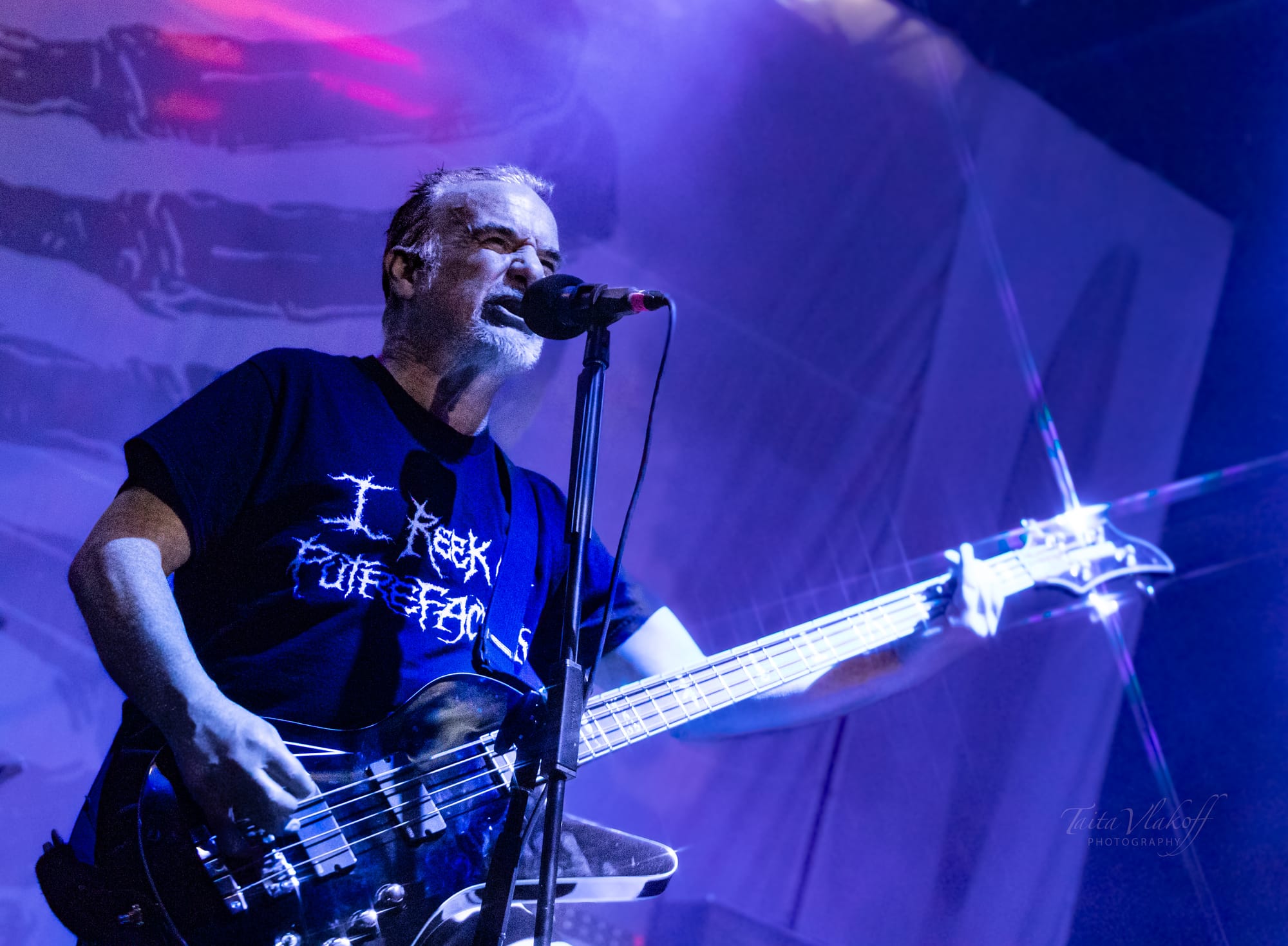
“Carcass doesn’t warm up a crowd — they slice it open and leave it bleeding.”
The lights faded, the crowd barely had time to breathe — and then the room exploded again.
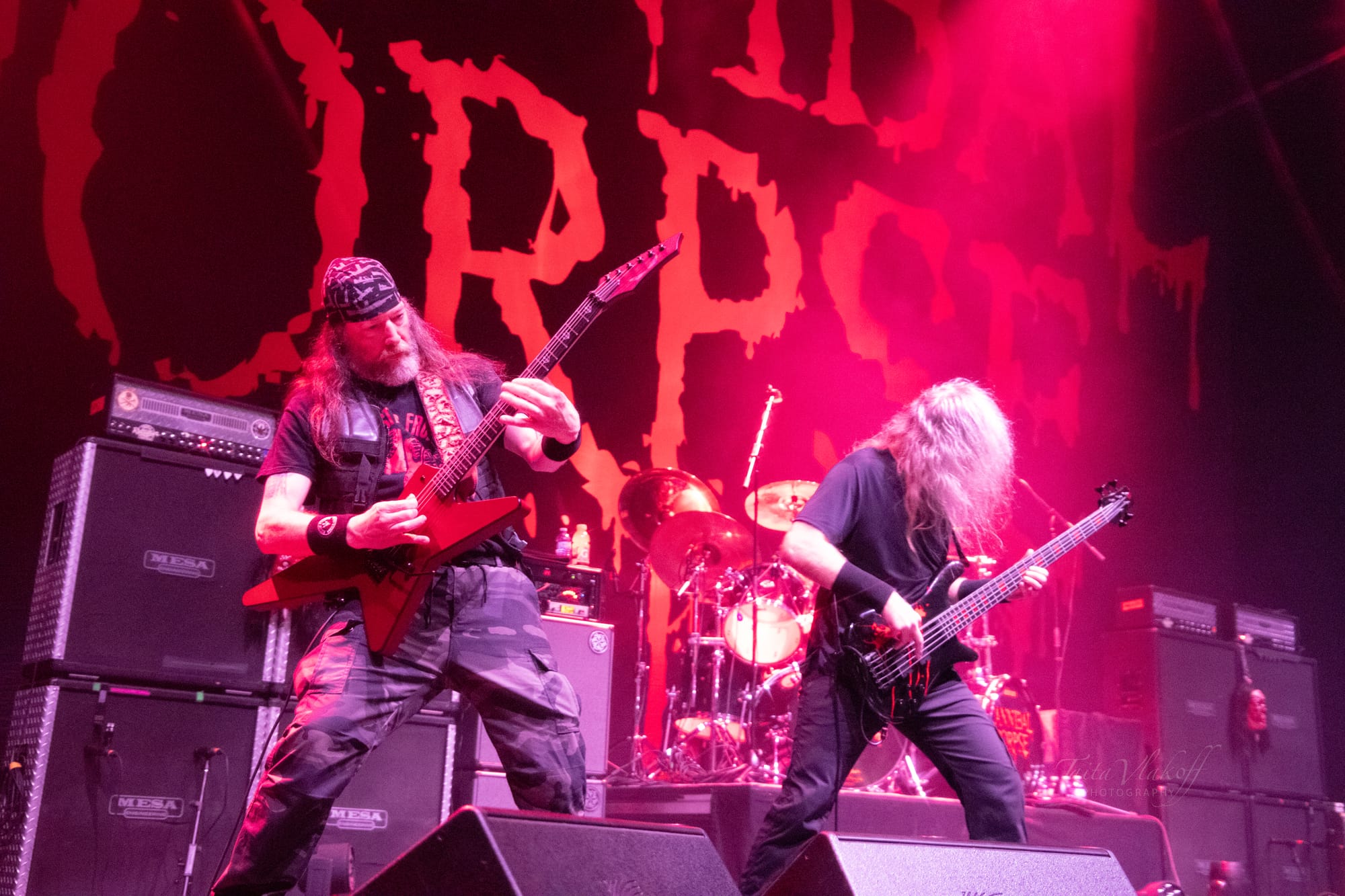
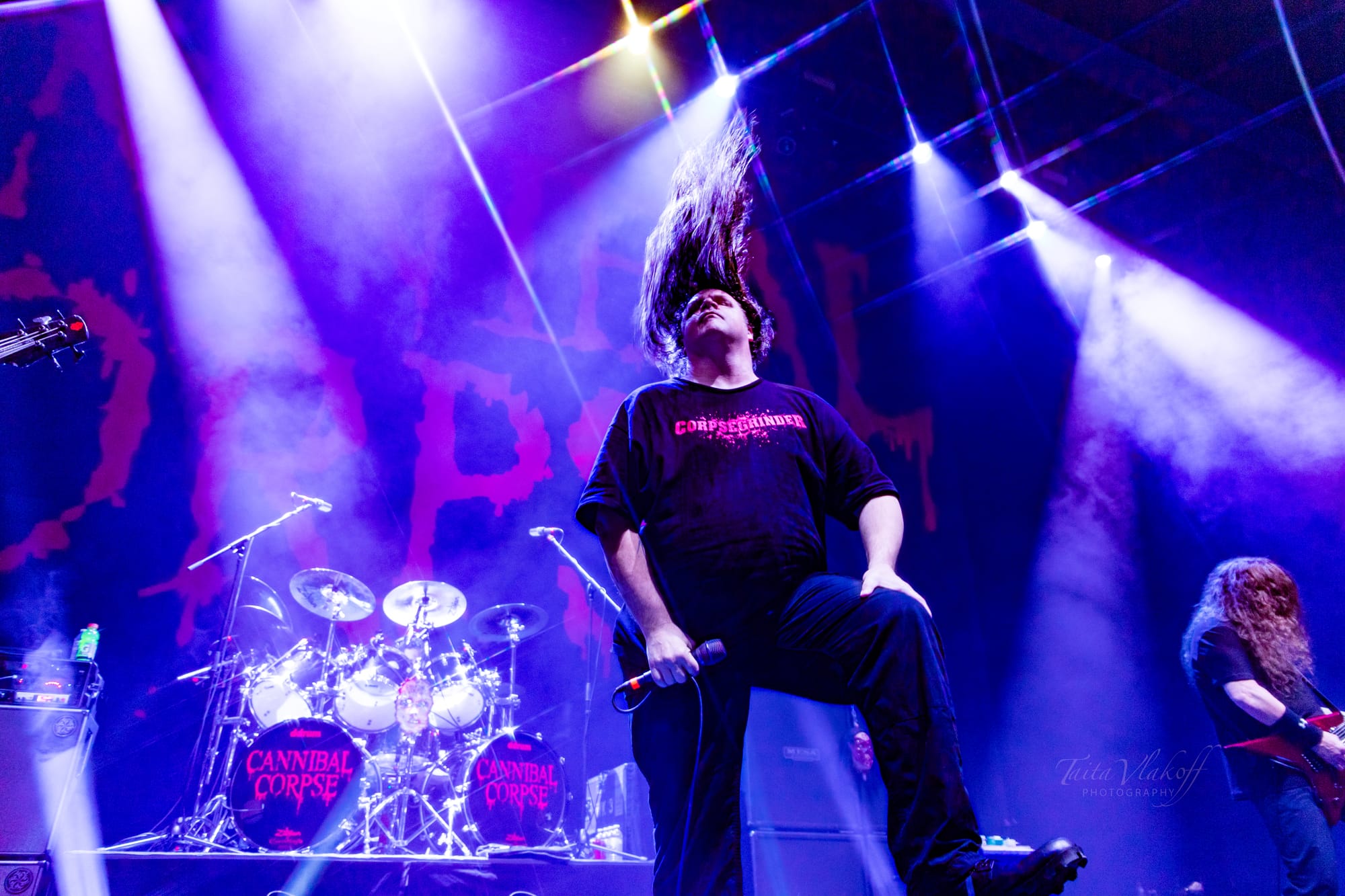
Cannibal Corpse walked on stage like a wrecking crew, no intro, no warm-up, just immediate, unapologetic violence.The opening riff of Scourge of Iron hit like a hammer, and instantly, the floor became a battlefield.You could feel the shift — bodies moving, fists in the air, the pit opening wide.
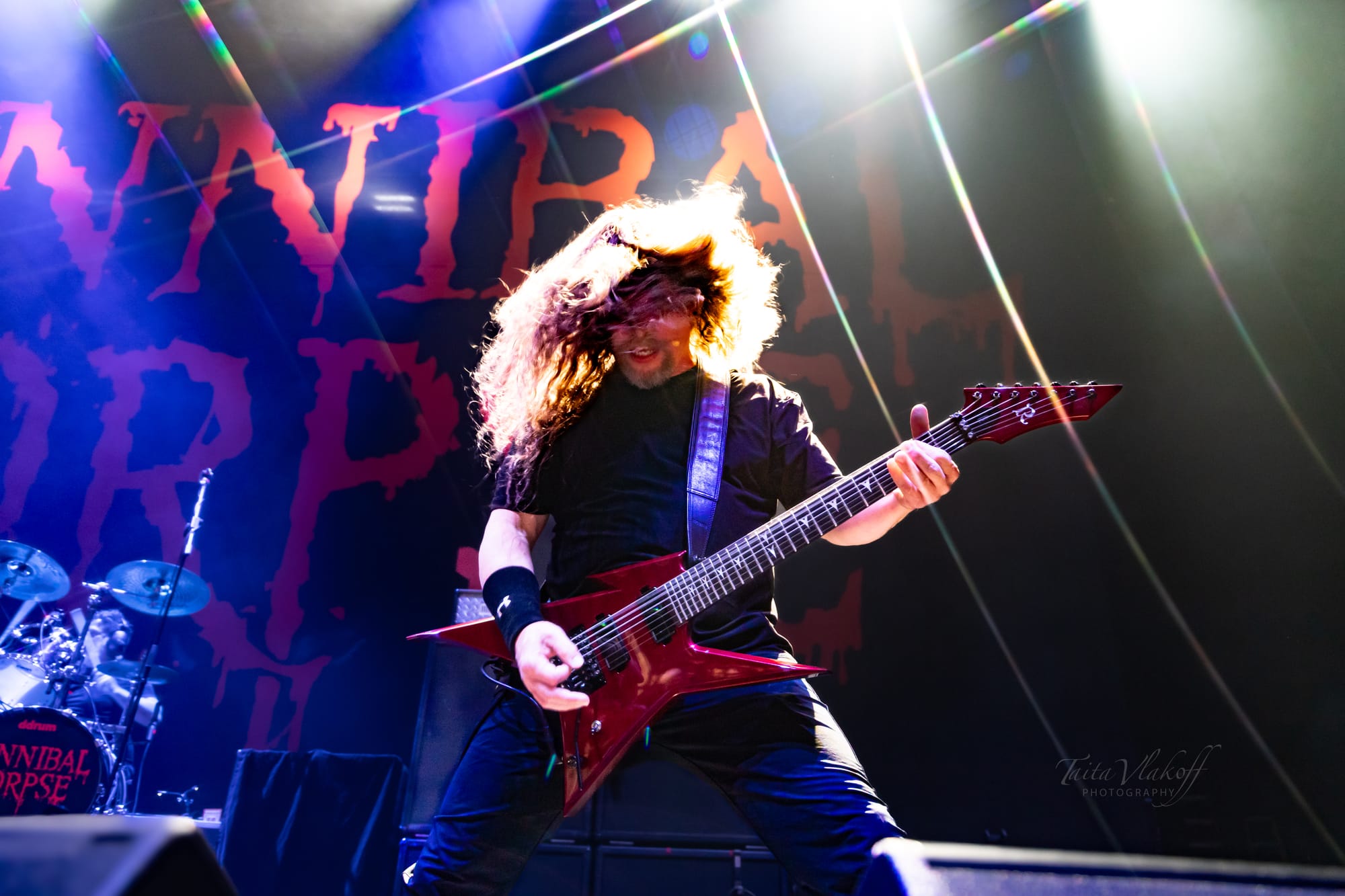
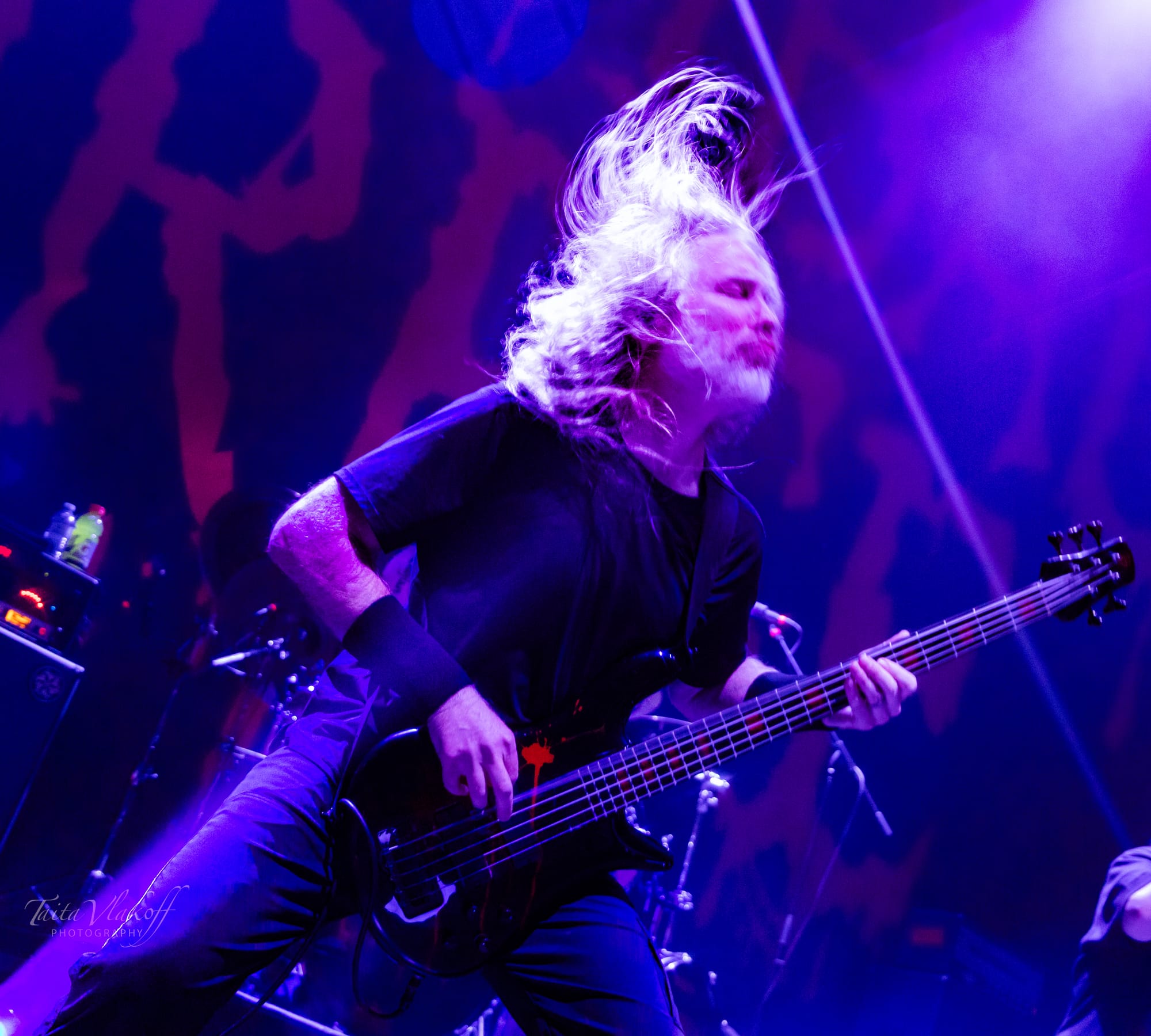
George “Corpsegrinder” Fisher stood front and center, a beast of presence. His guttural vocals are something you don’t just hear; you feel them in your chest. And somehow, after decades of fronting the most brutal death metal band on earth, his voice is heavier than ever.Watching him windmill headbang at full speed while growling out every word is exhausting just to witness — but absolutely magnetic.
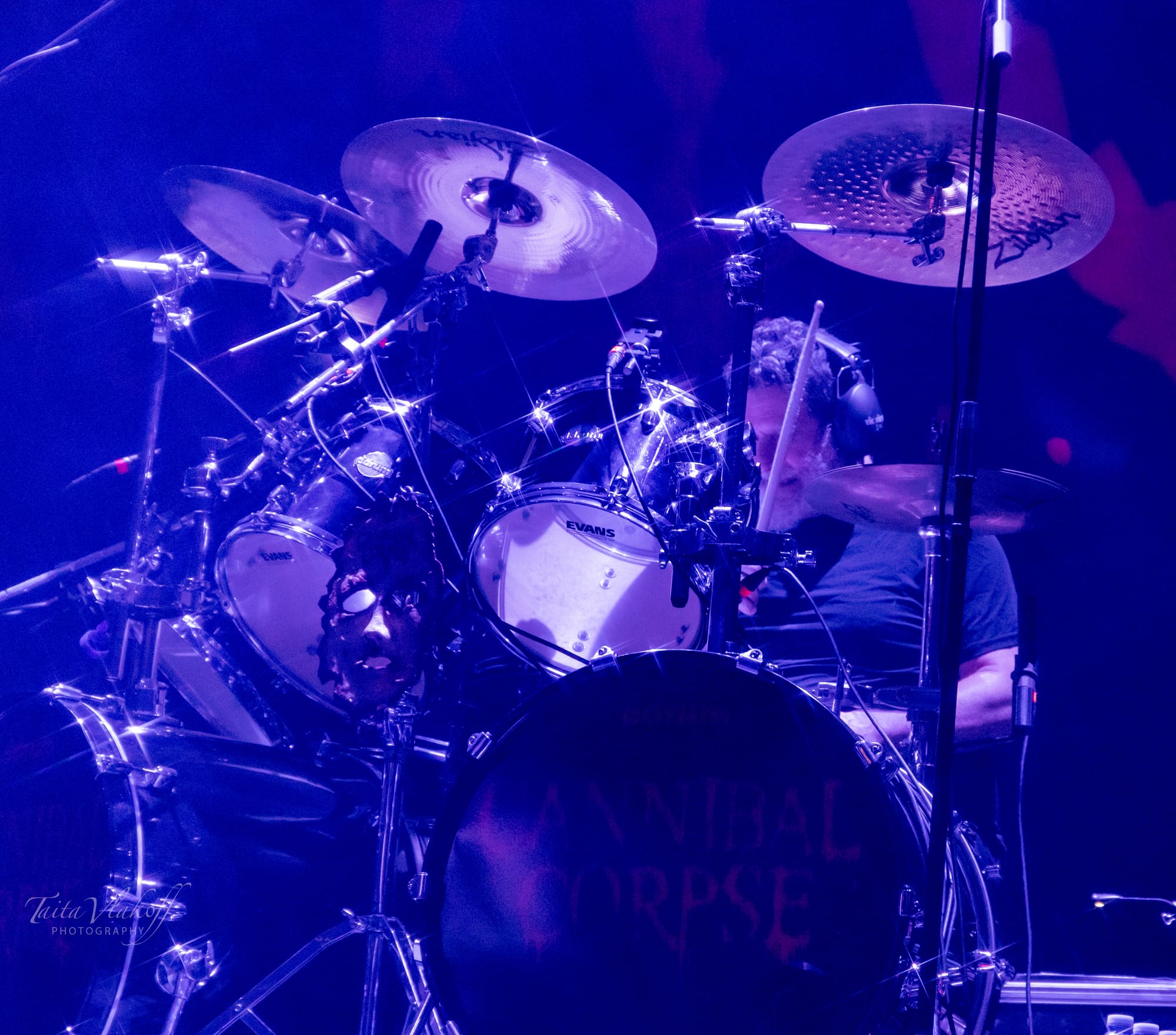
Erik Rutan and Rob Barrett delivered riff after riff like buzzsaws, sharp and relentless, cutting straight through the air without mercy.
Alex Webster’s bass tone rumbled beneath everything — like tectonic plates shifting under our feet — and Paul Mazurkiewicz’s drumming never let up, each blast beat like a hammer falling without pause.
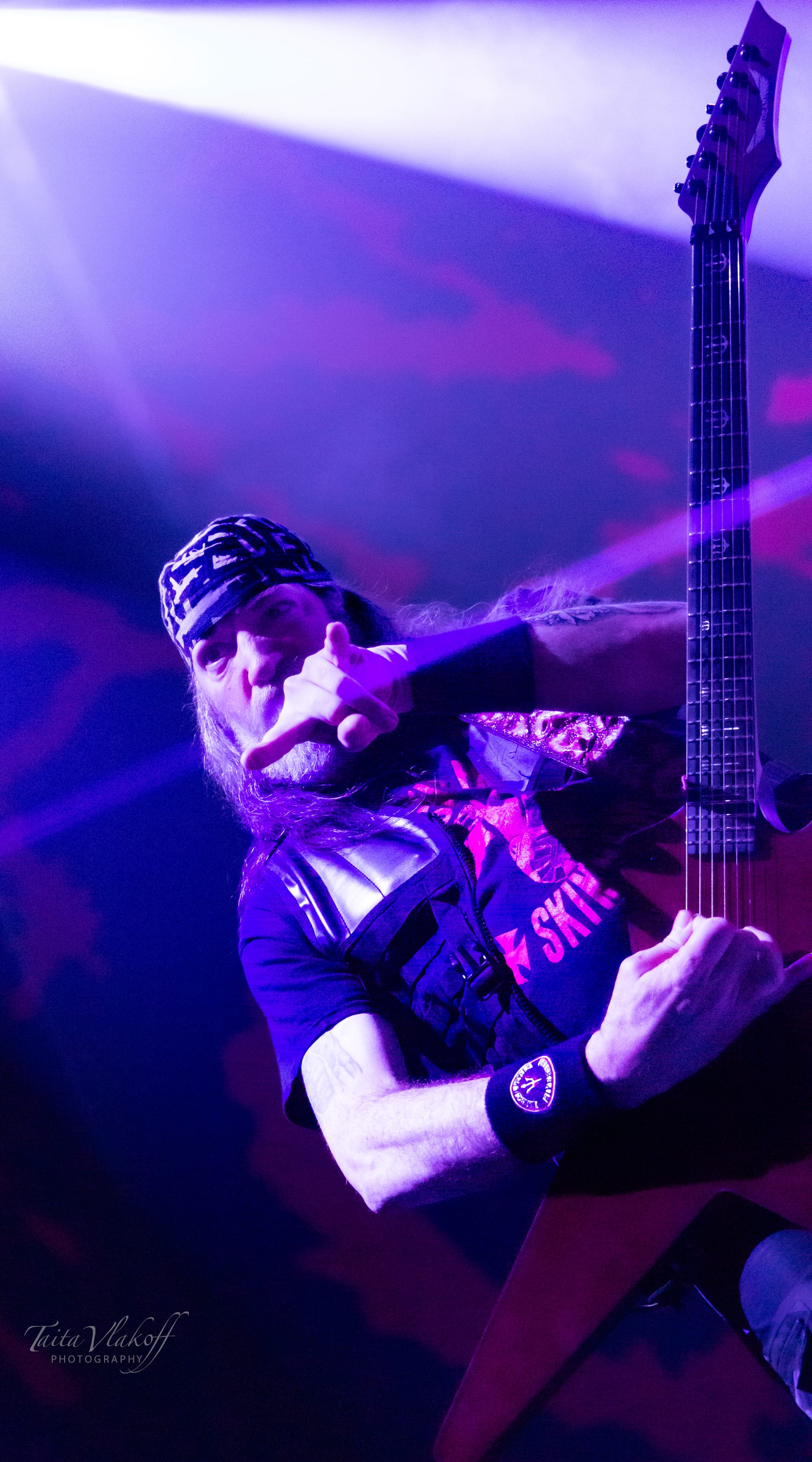
They ripped through their set with zero downtime, barely giving the crowd a second to catch their breath.
Blood Blind, Inhumane Harvest, Evisceration Plague, Summoned for Sacrifice — every track hit like a punch to the sternum.
The energy wasn’t just on stage — it poured into the crowd. The pit kept growing, the screams kept getting louder, people crowd-surfing, moshing, losing their minds to every riff and roar. And when they unleashed I Cum Blood, Toronto’s reaction was wild. You could feel the entire room erupt — not just fans in the front, but all the way to the back, people screaming the lyrics like a declaration.
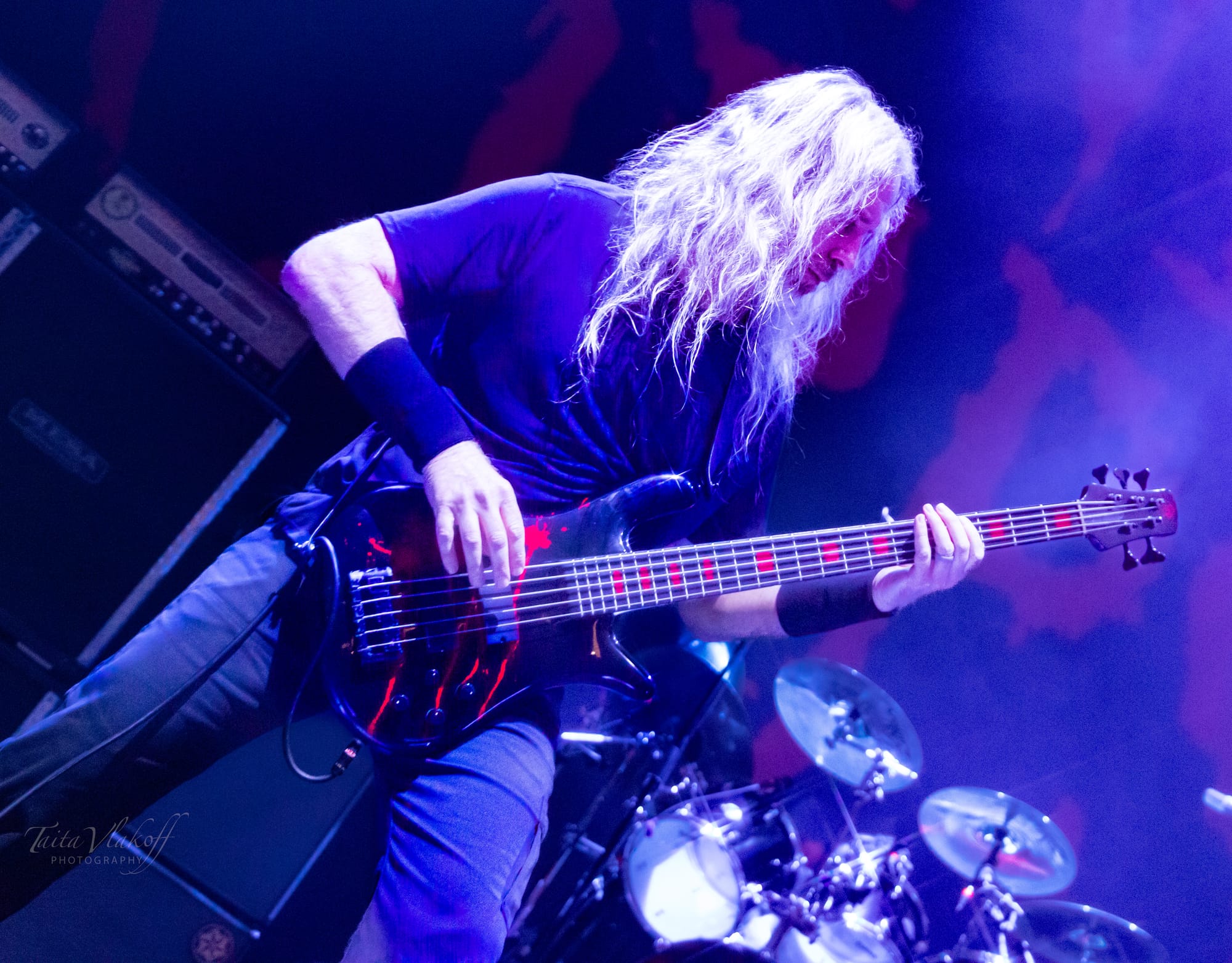
Of course, they closed with Hammer Smashed Face — and by that point, the entire venue felt like it was about to collapse. That iconic riff dropped, and the crowd threw everything they had left into one last eruption of chaos.
“Cannibal Corpse doesn’t ease you in — they crush you from the first note to the last and leave you crawling out of the wreckage.”
But the night belonged to the headliners.
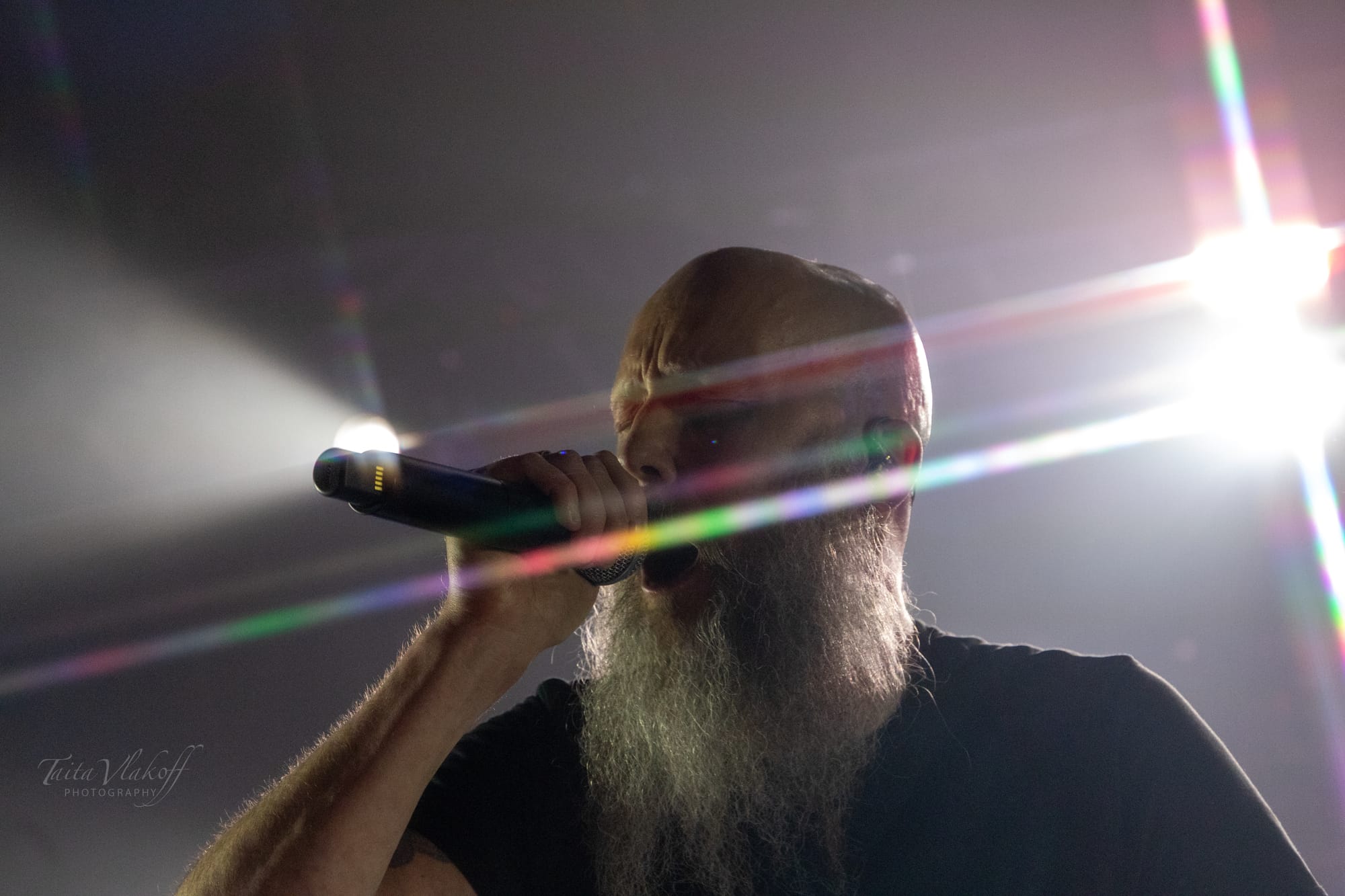
Meshuggah.
The reason we were all here.
The architects of controlled chaos.
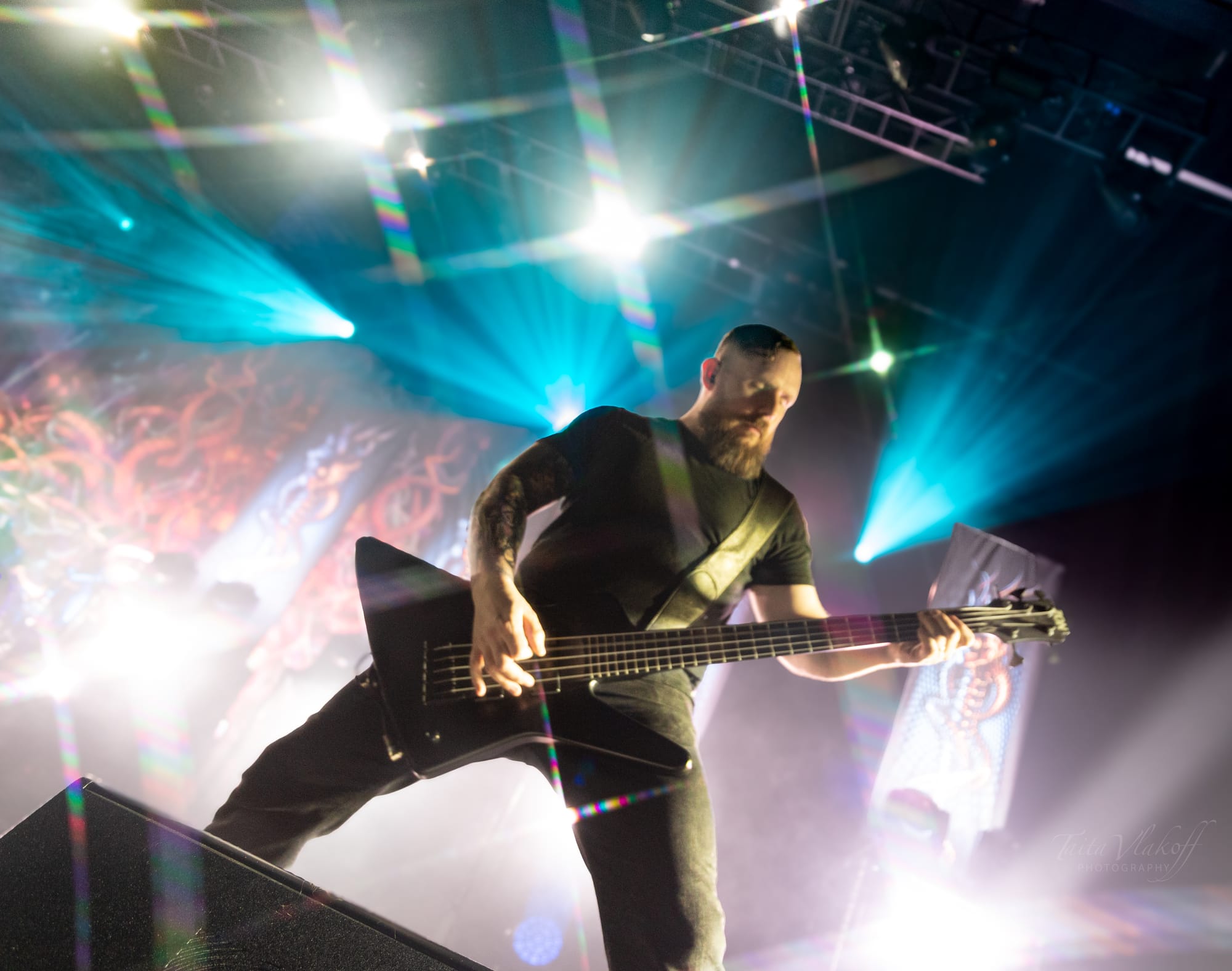

The atmosphere shifted.
The pulse of Broken Cog started, and the entire theatre leaned forward, knowing we were about to step into something heavier than sound itself.
No band commands gravity like Meshuggah.
Jens Kidman stood at the center — no theatrics, just presence.
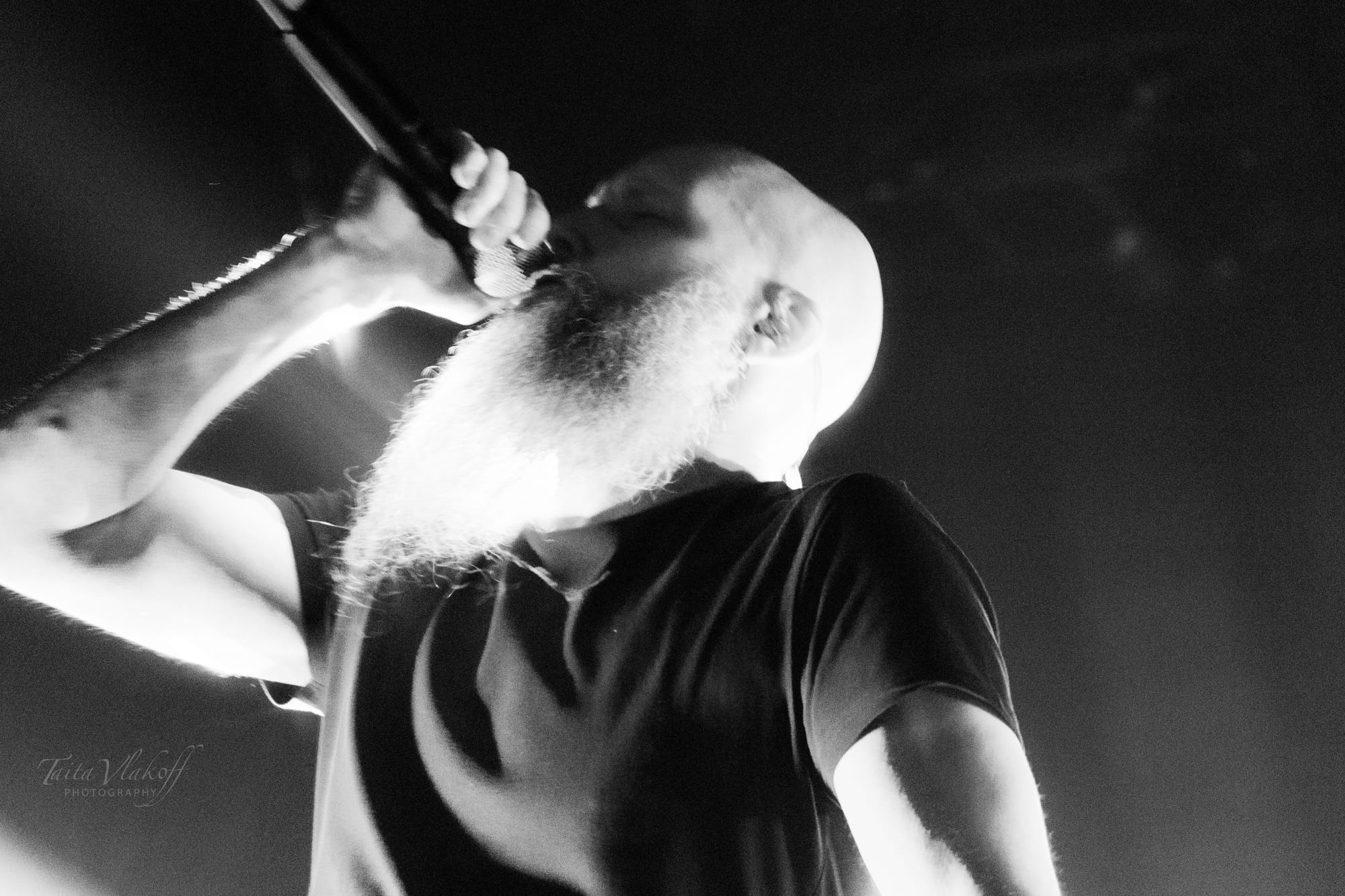
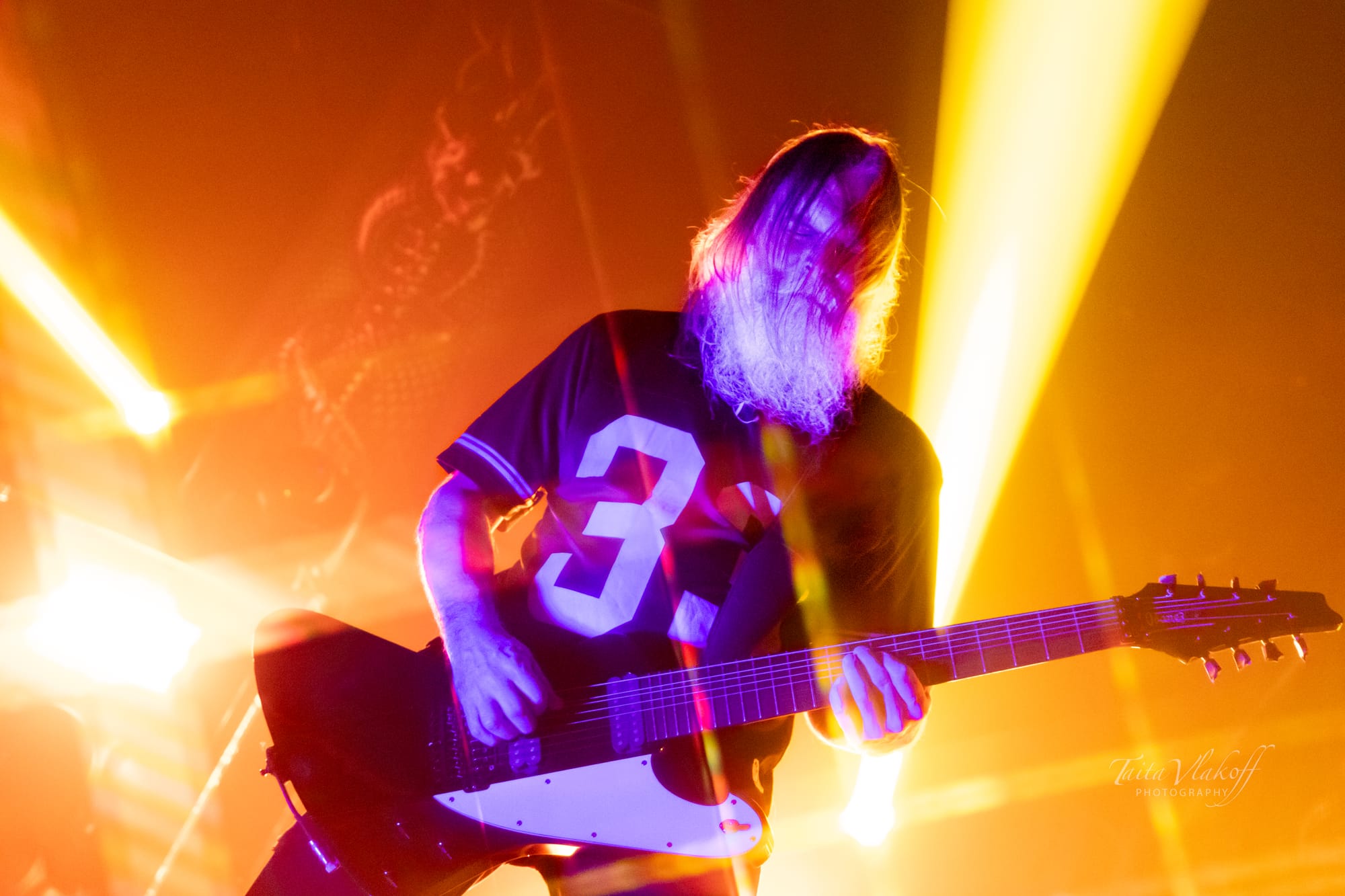
On guitars, Fredrik Thordendal and Mårten Hagström crafted a wall of dissonant, hypnotic riffs, while Dick Lövgren’s bass rattled the floor beneath us. And Tomas Haake behind the kit — his drumming wasn’t just rhythm; it was the architecture of the entire night.
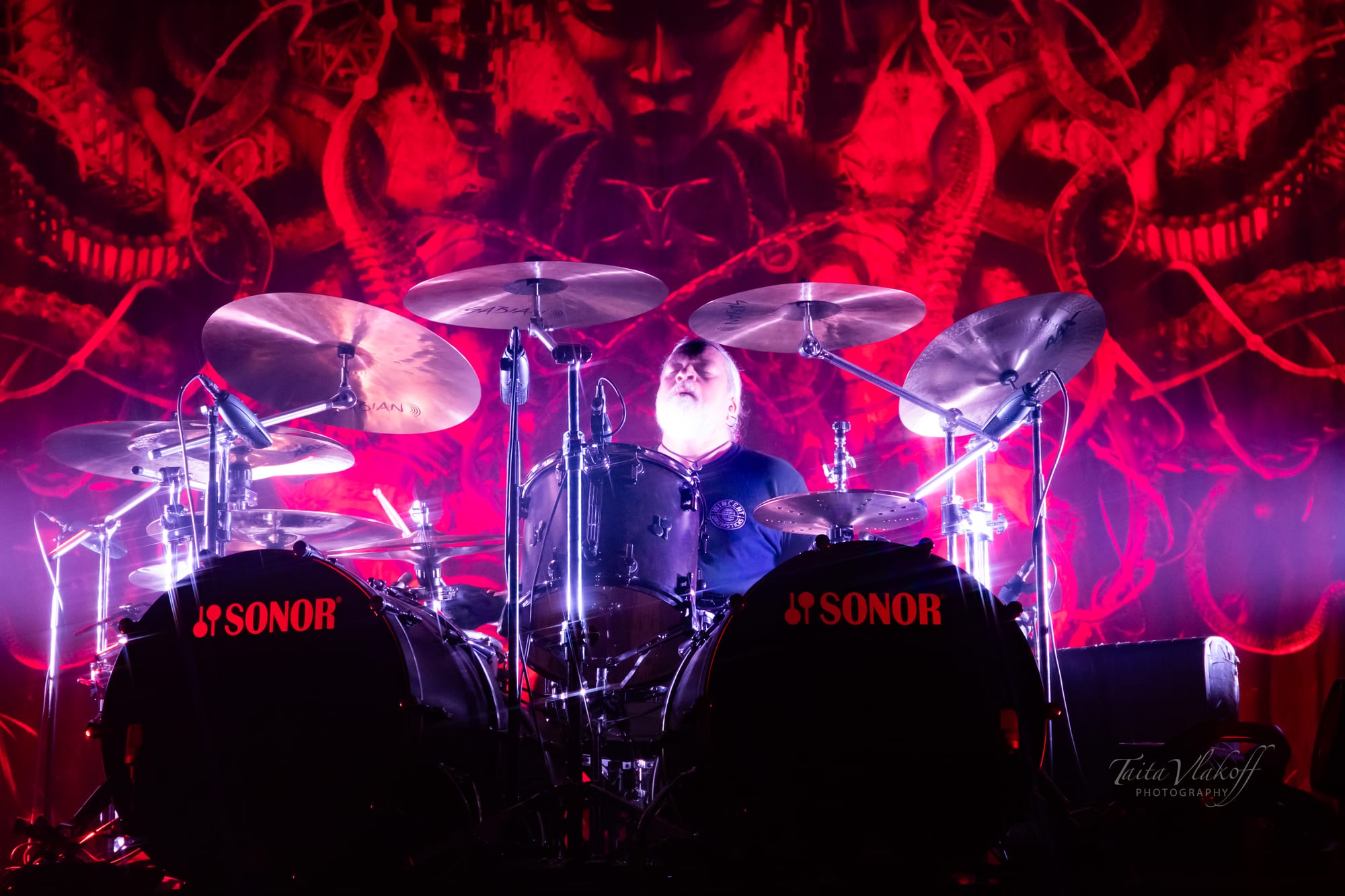
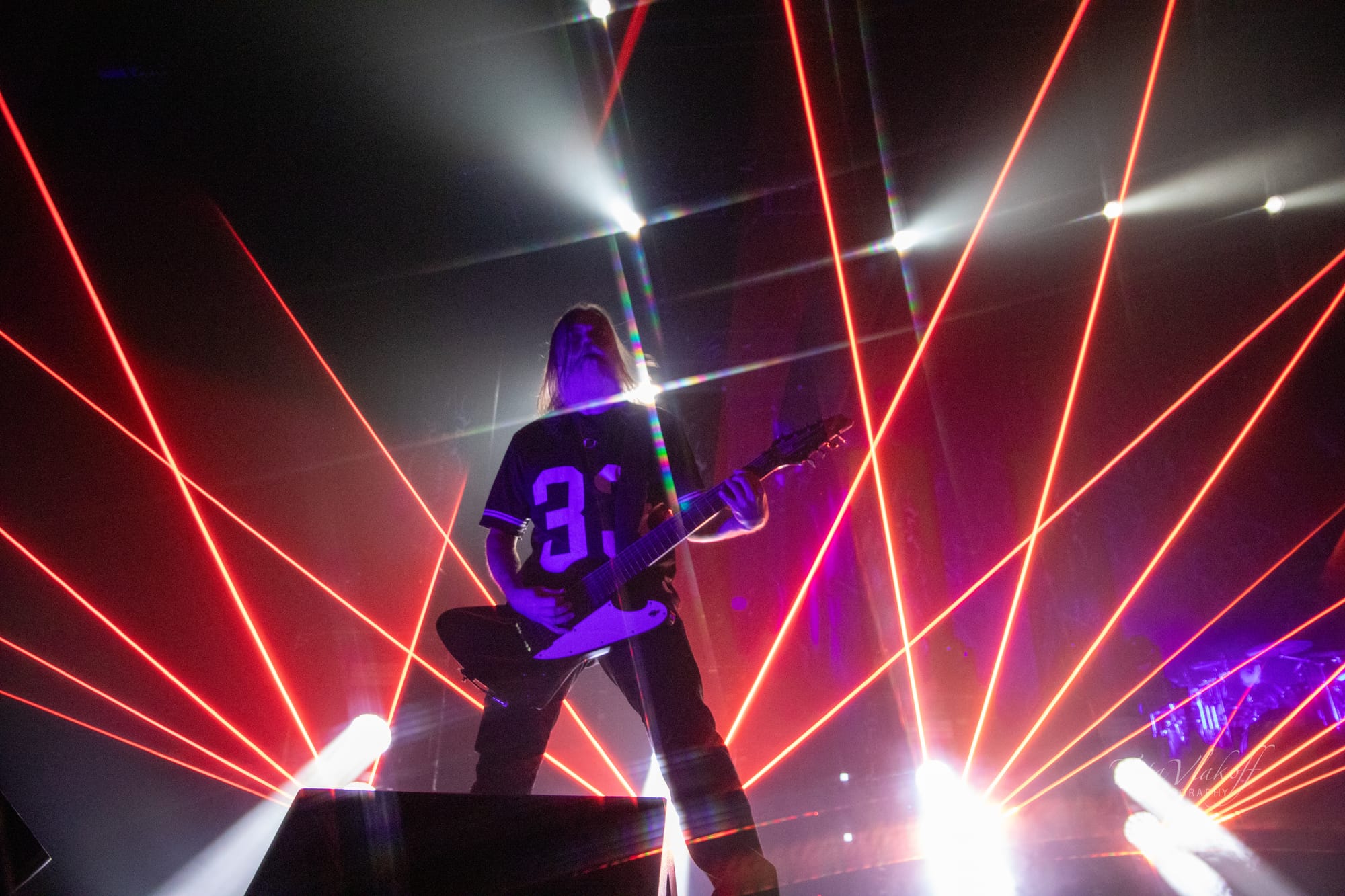
They delivered a flawless, mind-bending set:Rational Gaze, Combustion, Kaleidoscope, Future Breed Machine, God He Sees in Mirrors — each track pulling the crowd deeper under. And then came Bleed.
The moment we were all waiting for.
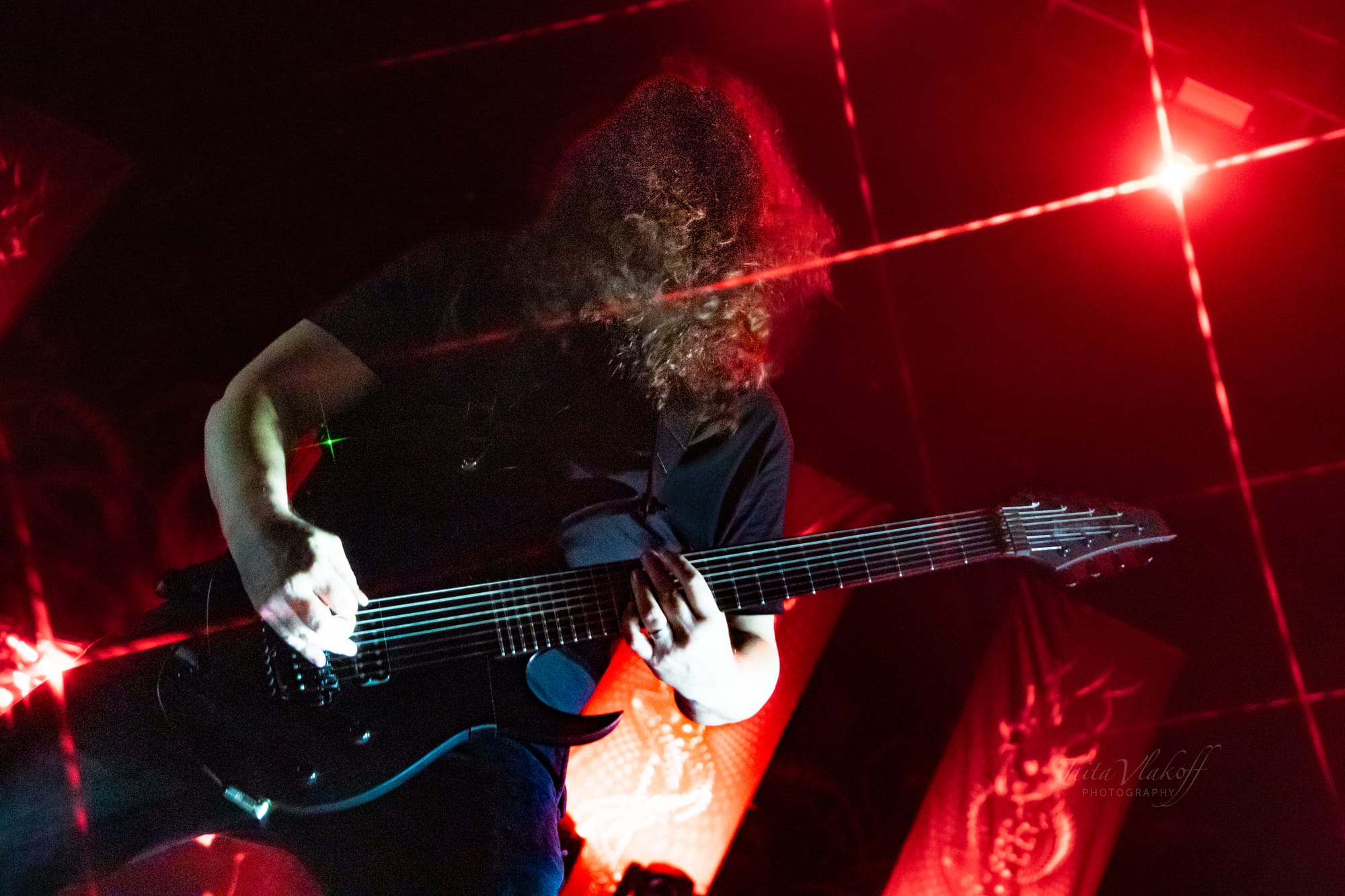
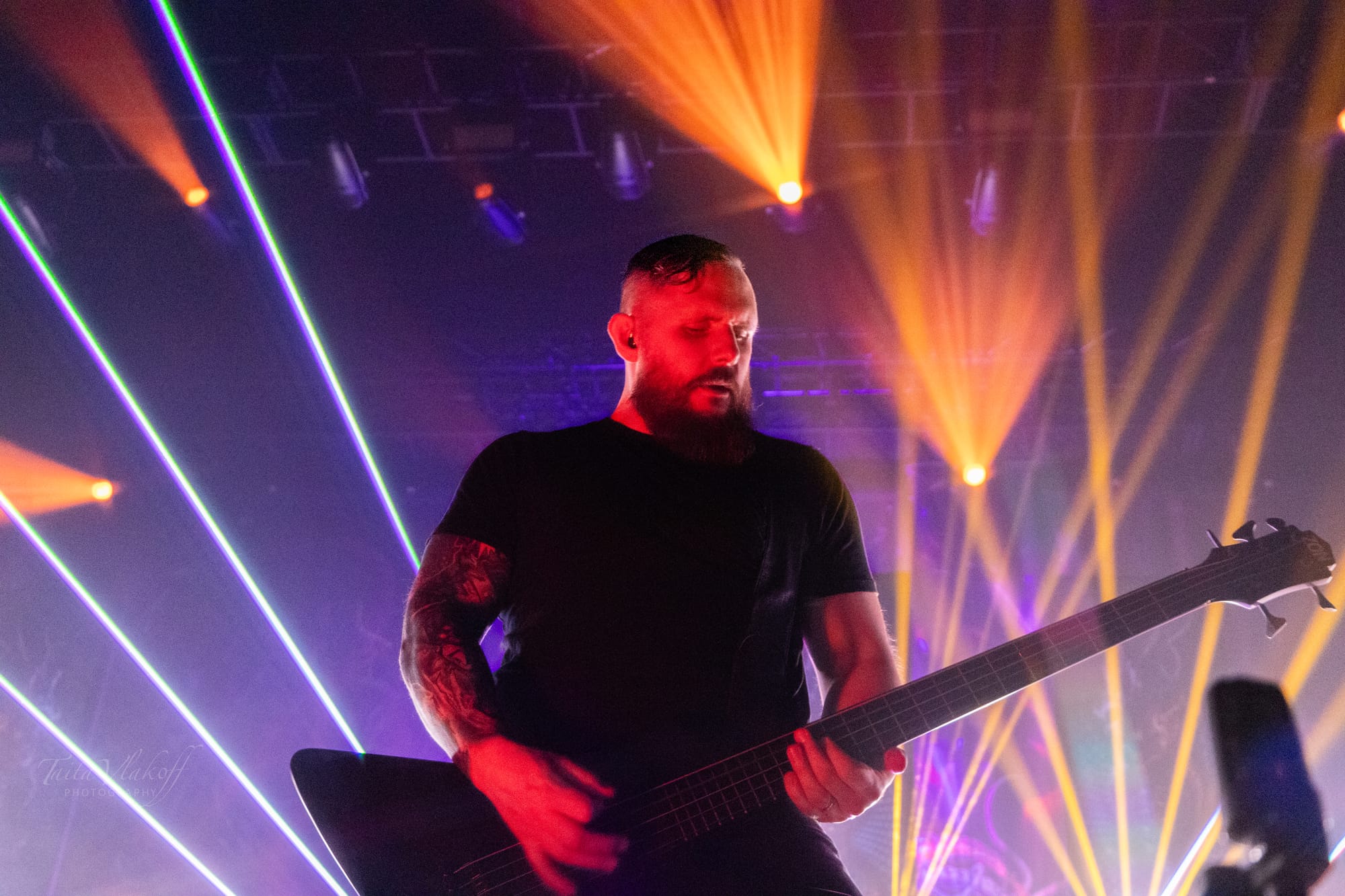
The entire venue moved as one — heads banging in sync, bodies swaying involuntarily, swallowed by that relentless, mechanical groove.
It wasn’t a song — it was a gravitational force.
They closed the night with Demiurge, leaving Toronto exhausted, breathless, and thankful.“Meshuggah don’t just headline — they dismantle reality and rebuild it on their own terms.”
It was a gathering of titans, a reminder of what happens when heaviness meets mastery. And Toronto will be talking about it for years.
If you survived that night, I want to hear from you.
What was the moment that broke you?
Was it Carcass’s surgical assault, Cannibal Corpse’s wrecking-ball chaos, or Meshuggah’s mind-bending heaviness?
Drop your war story in the comments.
Tag the friends you moshed, screamed, and bled with.
Let’s make sure the world — and the bands — know how hard Toronto roared when the titans shook the city.

